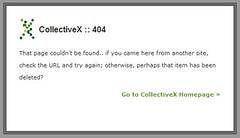
A new research paper (on OpenBC's own behalf) concludes "business networking pays" after doing multi-language interviews with around 24.000 OpenBC-members. But do non-focused, non-local business-networks really stand true to such statement?
Read more...
Lohnt sich OpenBC?
Eine neue (von OpenBC selbst in Auftrag gegebene) Studie kommt, nach einer mehrsprachigen Befragung von rund 24.000 OpenBC-Mitgliedern, zu dem Ergebnis "Networking lohnt sich". Aber lohnen sich nicht-fokussierte, nicht-lokalisierte Business-Netzwerke wirklich?
Mehr davon...
I see the figures from a different angle: about 55% of all interviewees made new contacts at OpenBC. This also means 45% of all members couldn't benefit from putting their profile online.
I once presumed the amount of such "dead accounts" within OpenBC, LinkedIn, etc would have been even higher. Still, OpenBC shouldn't feel too comfortable about this. A mere 16% of all interviewees could strike a deal at OpenBC--with one in four having more than 6 transactions. One could read from this, that only 0.6% of all members do regular business at OpenBC. Even 25% indicated they are not interested in new business-deals at all--making me wonder why taking part in a business-network in the first place.
"Networking capitalizes financially"? To me the inquiry is an evidence of incapacity. My thesis is still: the big, bulky networking-platforms like OpenBC and LinkedIn will be overtaken some day by smaller, focused, local networks, which will suffer less from spreading loss and contact-spamming.
Ich lese etwas völlig anderes aus den veröffentlichten Zahlen: Rund 55% aller Befragten knüpfen über OpenBC neue Kontakt. Das bedeutet aber auch, daß 45% aller Mitglieder hier nur ihr Profil eingestellt haben, und keinen weiteren Nutzen aus der Plattform ziehen konnten.
Ich habe mal gemutmaßt, daß die Zahl solcher "toter Accounts" bei OpenBC (oder auch bei LinkedIn etc.) noch deutlich höher liegen würde. Dennoch sollte ein Wert von 45% nicht für Jubel und Heiterkeit sorgen. Gerade mal 16% aller Befragten haben ein neues Geschäft über OpenBC abschließen können -- davon jeder Vierte mit mehr als 6 Abschlüssen; das bedeutet, daß nur etwa 0,6 Prozent aller Teilnehmer regelmäßig Geschäfte über OpenBC tätigen. Gleich 25% gaben an, gar nicht erst an direkten Geschäftsabschlüssen interessiert zu sein -- da frage ich mich allerdings wirklich, warum man in einem solchen Fall überhaupt an einem Business-Netzwerk teilnimmt.
"Networking via Internet zahlt sich finanziell aus"? Für mich kommt die Umfrage eher einer Bankrotterklärung gleich. Meine These ist nach wie vor: der Nutzen von klobigen Plattformen wie OpenBC und LinkedIn wird in Zukunft nicht mit dem von kleinen, fokussierten, lokalen Business-Netzwerken mithalten können. Die Gefahr von Streuverlusten und "Kontaktspamming" ist zu groß.
:) <- Lutz




















